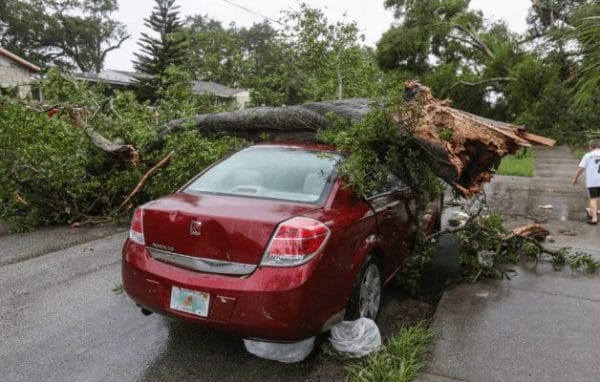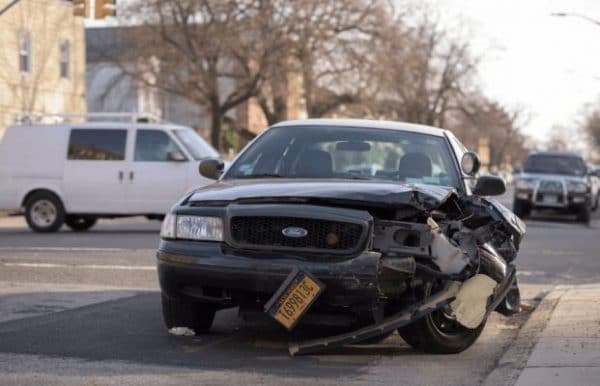Whether you’re a new or experienced driver, you’ll probably know that having your car insured is vital. You may also be asking how car insurance works. The steps involved in insuring a car can be complicated, but it’s quite simple after you’ve understood the base principles. Getting car insurance is mandatory in most states since it takes care of unforeseen circumstances and damages to your car.
Do You Need Car Insurance?

If you’re a car owner of any type of vehicle, the simple answer is yes. You need your car insured since the insurance will cover your car and the driver both. If you operate a vehicle with no auto insurance, you can face legal action from the authorities. You can also be fined and suffer from financial damages.
There are thousands of motor vehicle accidents in the country daily, which results in bodily injuries and destruction of property. Some road accidents are inevitable, unfortunately, so getting a car insurance should be on the main list of things to do right after you buy a car. Following traffic rules and driving safely can potentially keep you away from accidents, but the other party may be the sole cause of accidents even if it’s not your fault. This also adds to one of the reasons to get your car insured.
How Does Car Insurance Work?

When you search for car insurance, the insurance company will send you a quote for the premium. Along with the quotes, you’ll receive a whole bunch of varying choices where you’ll get to select the coverage fees. The coverage fees are different in all the different states. After this, you’ll have to select the coverage option that best suits you and pays the premium. You can either pay these prices on a monthly or yearly basis.
When you have the protection amount paid, the firm will make all the necessary payments in the case of an accident. The insurance company will also do the same if you’re looking to file a compensation request. Sometimes, you’ll be required to pay a fraction of the amount.
Some states require all the drivers to file a claim with the insurance firm they’re aligned with, no matter whose fault it is in the car of a road accident. So, you’ll also need to be aware of these laws. The no-fault law was introduced in some states to minimize lawsuits and restrict suing rights.
Pros and Cons of Car Insurance
Pros:
- Car insurances cover a substantial amount of car damages from accidents
- It declares the state that you’re operating a vehicle legally
- Getting your car insured takes care of your savings by protecting unforeseen financial damages to your assets
- If the need for car servicing arises, the insurance company will cover your fees
- You’re eligible for a no claim bonus annually
- It’ll give you peace of mind
Cons:
- It can be costly if you’re not a seasoned driver
- Filing claims could potentially decrease your annual savings
- Researching for the perfect car insurance offers can be quite a hassle
- Most auto insurances do not cover the entire car
- Claiming an amount may take time depending on the company
What Are The Things That Car Insurance Covers?

Basically, car insurance covers the aftermath in case of an accident. This means that it’ll cover any damage you may have caused to someone, along with damages to other properties. While most insurance coverages are compulsory, some are non-mandatory.
Some examples of the things car insurance covers are
- Personal Injury Protection (PIP): Personal Injury Protection helps cover the cost of any bodily injuries done to you and the passengers in the car.
- Guaranteed Auto Protection (GAP): This insurance will help you pay off the difference in the car’s original value and the amount that you owe on loan.
- Property Liability Coverage: This coverage will protect you from property damage claims.
- Medical coverage: Medical coverage will cover the cost of treatment for you and the passengers for any physical injury.
- Bodily injury liability coverage: This will cover the cost of claims if you’re the one who caused the accident and injured others physically.
- Comprehensive and collision coverage: Comprehensive coverage will cover any external or internal damage that is non-collision. Collision damage, on the contrary, will cover any cost if you collide your car with any car or property.
Additional coverages
- Rental reimbursement coverage – If you rent another car after an accident, this will cover the costs.
- Roadside assistance – If your car faces any road or highway problems, this will cover the costs.
- New car replacement coverage – This covers the cost of replacing your old car with a new one.
- Auto glass insurance – Covers the cost of replacing a cracked or broken windshield.
- Custom equipment – Covers the cost of additional car equipment like a new sound system.
How to Get a Car Insurance
You’ll get a quote initially once you contact an insurance company. You’ll have to provide them with the information on your vehicle too. Once you do that, you’ll get a range of optional quotes to choose from. You can gather multiple insurance quotes from different companies with the help of an agent until you find one that suits you and your car best.
Make sure you have all your paperwork regarding the information of your vehicle ready. This includes your driver’s license, your driving history, the car model and make, etc.
Car Insurance Pricing. How It Works
Pricing on car insurance is generally based on some common factors like your driving record, age, accident history, and your car usage frequency. If your driving record great, your premium will be lower. Your age also plays a factor as adults will tend to have lesser accidents than younger people. Also, if you have a history of accidents and a record of traffic violations, you may pay a higher amount. The insurance company also checks on how much you use your car. The higher the miles you drive daily, the higher the probability that you’ll meet an accident. As morbid as it sounds, you’ll have to pay a higher amount if you generally travel longer distances than others.